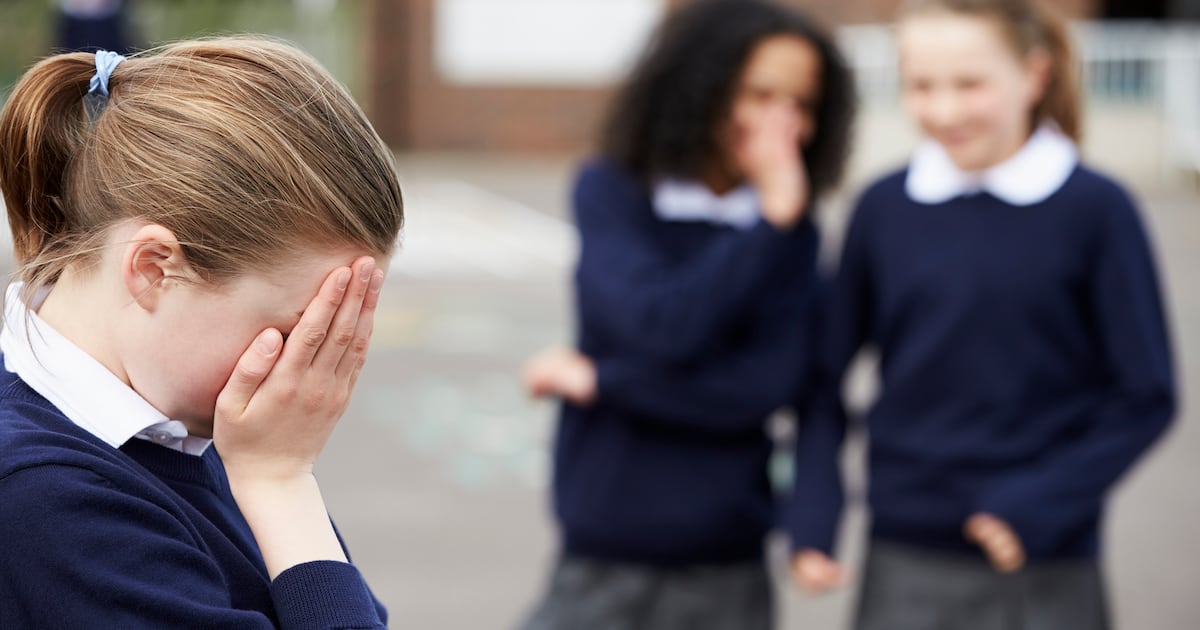Lifestyle
Study Reveals Impact of Bullying on Children’s Mental Health

A recent study conducted by the Economic and Social Research Institute (ESRI) has highlighted the concerning link between bullying and mental health among children aged nine to thirteen in Ireland. The research indicates that children who identify as lesbian, gay, or bisexual, as well as those with disabilities, experience higher rates of bullying and subsequent mental health issues.
The study, which utilized data from the Growing Up in Ireland (GUI) initiative, found that while most young teenagers encounter some form of bullying behavior, fewer than 10% consider themselves to be actively bullied. When asked about their experiences, 40% of nine-year-olds reported being picked on in the past year, a figure that increased to over 60% among thirteen-year-olds.
Particularly vulnerable groups, including those who identify as lesbian, gay, bisexual, or questioning, as well as children who are overweight, faced increased bullying incidents. Of the thirteen-year-olds surveyed, 62% reported experiencing at least one form of bullying behavior such as physical violence, name-calling, or social exclusion. Alarmingly, 37% of those reported that such incidents occurred repeatedly, yet only 8% classified these experiences as bullying.
According to the study, teenagers were more likely to recognize online abuse and name-calling as bullying compared to social exclusion. Children with disabilities, those who identify as LGBTQ+, and overweight children often faced social bullying, which included exclusion and derogatory remarks, rather than physical aggression.
The research correlates frequent bullying and repeated targeting with poorer wellbeing and increased levels of depression. Specifically, exclusion from peer groups was significantly associated with both diminished wellbeing and heightened depressive symptoms.
Emer Smyth and Merike Darmody, the authors of the report, cautioned against drawing straightforward conclusions from the findings. “Bullying victimization may lead to depressive symptoms but it also may be the case that those who experience depression become a target for bullying,” they noted.
The report emphasizes the ongoing challenges faced by children and young people with disabilities, who report higher rates of social exclusion and name-calling. It also highlights the need for targeted interventions to address homophobic behavior in schools and youth organizations.
One of the most striking revelations is the disparity between how young people define bullying and the definitions used by educational institutions. A significant number of children experience behaviors that upset or anger them but do not label these experiences as bullying, which may deter them from seeking help from adults or authorities.
This study underscores the necessity for effective measures to foster inclusivity and combat bullying, especially among vulnerable populations. As children navigate these formative years, prioritizing their mental health and wellbeing is essential for their development and future.
-

 Top Stories3 months ago
Top Stories3 months agoTributes Surge for 9-Year-Old Leon Briody After Cancer Battle
-

 Entertainment4 months ago
Entertainment4 months agoAimee Osbourne Joins Family for Emotional Tribute to Ozzy
-

 Politics4 months ago
Politics4 months agoDanny Healy-Rae Considers Complaint After Altercation with Garda
-

 Top Stories4 months ago
Top Stories4 months agoIreland Enjoys Summer Heat as Hurricane Erin Approaches Atlantic
-

 World5 months ago
World5 months agoHawaii Commemorates 80 Years Since Hiroshima Bombing with Ceremony
-

 Top Stories3 months ago
Top Stories3 months agoNewcastle West Woman Patricia Foley Found Safe After Urgent Search
-

 Top Stories5 months ago
Top Stories5 months agoFianna Fáil TDs Urgently Consider Maire Geoghegan-Quinn for Presidency
-

 World5 months ago
World5 months agoCouple Convicted of Murdering Two-Year-Old Grandson in Wales
-

 World5 months ago
World5 months agoGaza Aid Distribution Tragedy: 20 Killed Amid Ongoing Violence
-

 World5 months ago
World5 months agoAristocrat Constance Marten and Partner Convicted of Infant Murder
-

 Top Stories4 months ago
Top Stories4 months agoClimbing Errigal: A Must-Do Summer Adventure in Donegal
-

 Top Stories4 months ago
Top Stories4 months agoHike Donegal’s Errigal Mountain NOW for Unforgettable Summer Views









